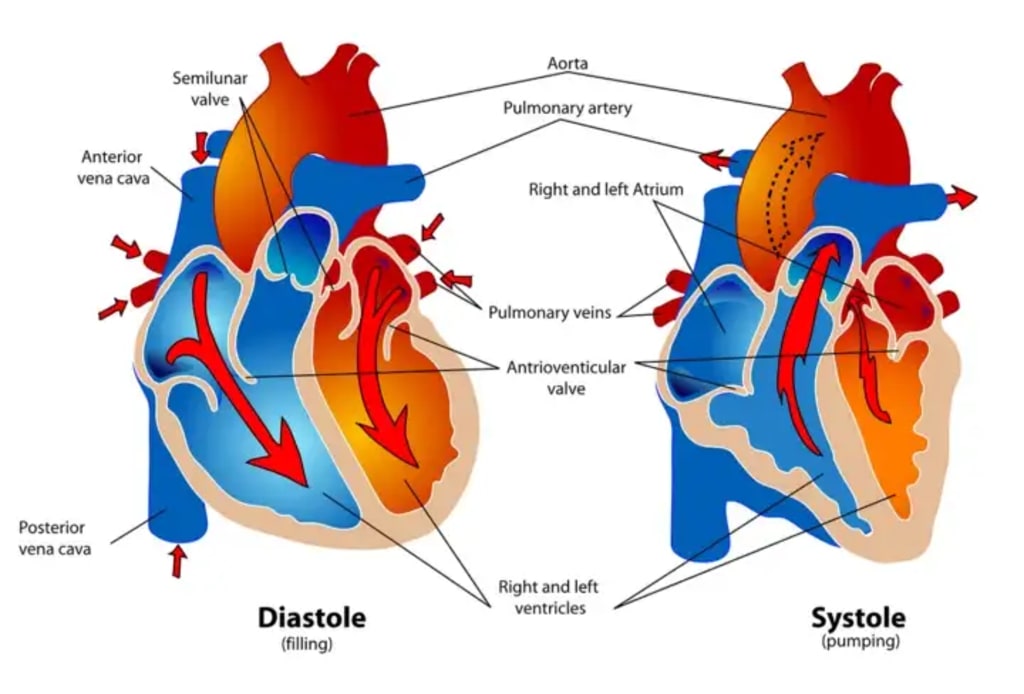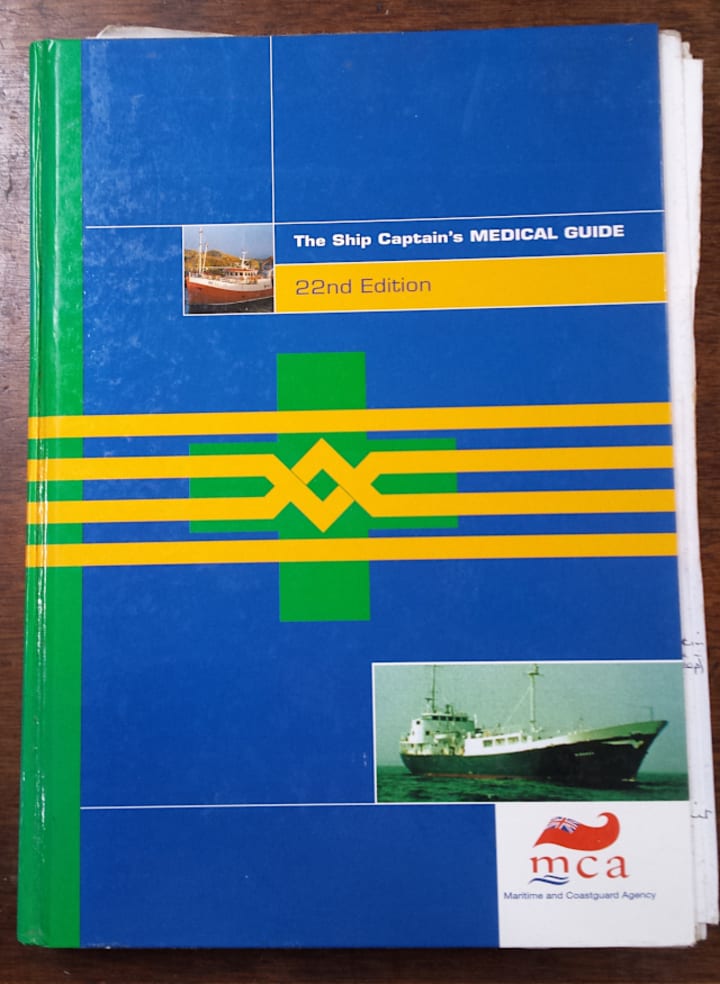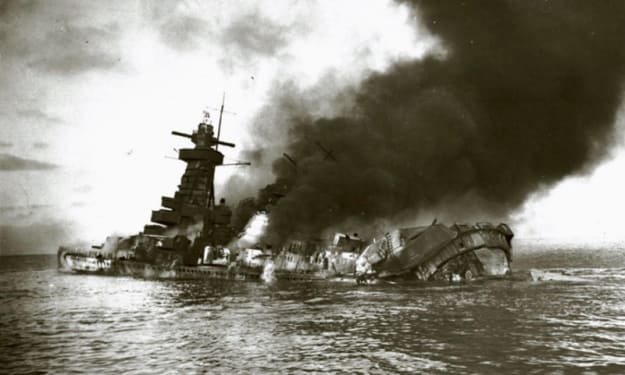Jump-Starting Your Heart
A chance brunch meeting led to a discussion about re-starting my heart at sea and a defibrillator

I live on a boat and the First Mate and I cross oceans.
Should we carry an AED (automated external defibrillator) on our boat? We cannot cater for all emergencies, so how much medical kit should we carry? These are practical questions we have to deal with when planning an ocean voyage. Our medical kit is extensive and we even carry a neck brace.
And a rather frightening medical guide.

But where do you draw the line - we have limited space?
Here’s a frightening story about how this topic came up and a few words about re-starting a stopped heart.
Easter brunch
We were out at an Easter brunch today and I got talking to Donald, a fifty-ish guy. We exchanged pleasantries and as bit of life information as guys do. Then the talk got round to his wife, Micki. They’d had a nasty experience a few months back.
Emergency
Donald woke up one night because he heard his wife snore. Apparently she never snores and this was a strange sound, so odd that it had woken him.
He nudged her. No reaction. That surprised him because she was a light sleeper.
He shook her. No reaction.
He put the light on. Micki’s face was losing colour as he watched. Then she exhaled once. She did not breathe in. Her lips were starting to go blue
He checked for a pulse. Nothing.
The scream
He screamed, started giving her CPR and then realised that was no good on the bed. He got her onto the floor just as his eleven year old daughter came in to the bedroom, sleepy eyed.
‘Why did you scream Daddy?’
‘Mummy’s not well. Call an ambulance now. Quickly.’
She used his mobile phone while Donald continued the CPR. He reached up and put the phone on speaker. The emergency services controller talked to him as he continued to try and revive his wife.
Fortunately they live near a medical centre and within four minutes an ambulance arrived. The team used a defibrillator to restart Micki’s heart. She survived without any brain damage other than losing three days of her memory.
But why?
Donald explained that Micki is perfectly healthy, her heart is in top condition, but the doctors told him that for some unfathomable reason that night the messages from her brain to her heart stopped. The doctors can find no medical explanation for the incident. And no, they do not believe that it was related to Covid vaccinations.
Micki now has a combined defibrillator/pacemaker fitted. It has not triggered since it was implanted.
Could you do CPR?
Could you do it if you had to? You’d possibly be saving someone’s life.
I’ve done a first-aid course as part of my preparation for long ocean passages in our boat, as has my First Mate. We have both learned the ‘Nelly the elephant’ chorus as an aid to giving CPR and it might work. But of course a cardiac arrest can occur anywhere, with the fittest of people, in the street or at a football match.
It happened to Christian Eriksen , a Danish soccer player who collapsed on the pitch during his team’s opening Euro 2020 match against Finland. They were lucky to save him, even with an AED (automatic external defibrillator).
Less than a year later he is back playing English Premier League football for Brentford, and Denmark, with an implanted defibrillator.
If performed immediately, CPR can double or triple the chance of survival from an out of hospital cardiac arrest — cpr.heart.org
Here’s a link to the simple CPR process with which could save someone’s life.
Should CPR training be part of a child’s education?
We teach our kids how to swim, but do we teach them resuscitation from drowning? Maybe we should. And we should teach them CPR.
How frequently does it happen? According to Wikipedia: 13 per 10,000 people per year (outside hospital in the US) suffer cardiac arrest.
Defibrillator or not?
My heart could stop even in harbour, but it’s long distance sailing that is the main issue for us. Or the First Mate’s heart. Of course we get ourselves checked out but as we’ve seen it can happen to anyone. And we're not getting any younger.
We can be on the ocean a thousand miles from anywhere, relying only on our own resources. We carry an extensive medical kit and a satellite phone. But of course there are no ambulances to turn up in four minutes, although we can talk to a medical professional through an MRCC (Maritime Rescue Coordination Center) using the satphone.
Or we might get lucky making a Mayday call and finding a ship nearby. But what could they do?
After brunch
So after that brunch the First Mate and I had a discussion about an AED. She didn’t think it was necessary for us to carry one on the boat. I guess it all comes down to cost. We couldn’t afford to spend much of our limited budget on a device which has a low (?) probability of being used.
But when you need it, you really need it.
What’s that worth?
My brunch mate Donald is a strong advocate of AEDs and so I delegated the First Mate to research the cost of the devices this afternoon. Her report just in is that an AED is beyond our budget, not even a marginal decision, although professionally refurbished units are available.
I did the research on using AEDs at sea and what other long distance sailing folk thought. This quote sums it up:
The first [step] is CPR. So you need to ask, can you do CPR? Do you have the knowledge, strength, endurance? Do others on your boat? (in case you are the patient). Second is activation of the emergency medical system- on a boat that can be problematic depending on where you are, but presumably you can make a Mayday call or even a 911 cell call if inshore and then hope that there are rescue resources close enough to help. Then comes the AED and yes, it can be a lifesaver, but only in limited circumstances, that is, the heart has to be in a “shockable rhythm”- it has to be beating in a way that the electric charge will reset it back to normal. Many cardiac arrests are not shockable in which case the AED will not help. — cruisersforum post
I guess we’ll have to stick to the kiss of life then. Frequent practice is good.
And hope.
Note: this is not medical advice.
***

Canonical link: This story was first published in Medium on 10 May 2022
About the Creator
James Marinero
I live on a boat and write as I sail slowly around the world. Follow me for a varied story diet: true stories, humor, tech, AI, travel, geopolitics and more. I also write techno thrillers, with six to my name. More of my stories on Medium
Enjoyed the story? Support the Creator.
Subscribe for free to receive all their stories in your feed. You could also pledge your support or give them a one-off tip, letting them know you appreciate their work.






Comments
There are no comments for this story
Be the first to respond and start the conversation.